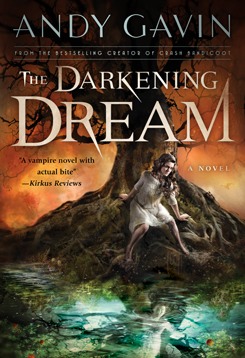 Title: Delirium
Title: Delirium
Author: Lauren Oliver
Genre: Dystopian YA
Length: 114,500 words, 441 pages
Read: May 17-21, 2011
Summary: Big disappointment.
Earlier in the week I read Lauren Oliver’s debut novel Before I Fall and loved it. So I eagerly downloaded her second book, Delirium, on my Kindle/iPad and set to reading. Ick.
She’s a very good writer, and the prose style is nearly identical, being first person present from the POV of a 17 year-old girl. For all it’s flaws (I’ll get to those), the voice is still very good, and makes for compelling reading at first. Oliver’s still great at inner monologue.
But everything else falls pretty flat.
Let’s begin with the premise. First of all, it feels like someone told Oliver that “dystopian is hot” and she jumped on the bandwagon. As far as I can tell, she shows no knack for it whatsoever. And worse, she pushes in this direction at the expense of her considerable talents elsewhere. This version of America exists an ill-defined period in the future, probably around 2050-2075. The central premise of the society is that LOVE has been diagnosed as a disease and the source of all societal ills. But fear not, a cure exists, some kind of magic brain surgery that gets rid of most feeling and desire. Everyone gets this at 18, because conveniently, that’s the age “the cure” works at.
Now besides this ludicrous premise, which involves a drastic about face of human tenants consistant since the dawn of time, we have to accept that in 50 years almost no technology has changed. Sure there are a few nasty totalitarian rules and such, but they still use cell phones, they still text. The book has absolutely NO description of anything different other than attitudes. Hell, there was probably more innovation between 1300 and 1350 than shown here! I just completely didn’t buy the world. Not one bit. There’s no way we could get from here to there. And it’s been done to death before. Better. Delirium is like a lame The White Mountains crossed with Uglies. Both books are far better (particularly the first). The whole thing felt entirely forced, like it was all derived from the high concept premise without any other consideration.
In Before I Fall, Oliver showed herself adept at painting peer groups. This is hard stuff, and fascinating when done well. But we don’t have it here. We have a protagonist, who isn’t bad, albiet a little generic, but then we don’t have too much else. Next up we have the romantic interest and best friend — both okay also. But that’s it. The other characters are like cardboard cutouts. I find this hard to jive with her first book where even the minor characters are deftly drawn.
Also in her first book was an intricate and cleverly woven progression of plot and character, while not perfect, it formed a lovely little puzzle unfolding across the length of the novel. And most importantly, giving a sense of emotional depth.
So what happened? I’m forced to conclude that either: 1) she spent much much longer writing her first book and really polished the hell out of it (nothing wrong with that) or 2) that she should have stayed more firmly rooted in the familiar early 21st century as the complexities of world building (even this minimally) sucked her focus.
Or both.
Still, I do have to give her credit for prose skills. They pulled me enthusiastically through the first third, then groaning and moaning through the rest. If it hadn’t been for this I would have chucked it in the middle and you wouldn’t have seen the review (I rarely review the many books I give up on — doesn’t seem fair).
I’m sad. It could have been so much better. I have nothing against dystopian — I am after all a hard core sci-fi reader — I’d have read nearly anything she gave me and enjoyed it if she just provided some reason to care.



